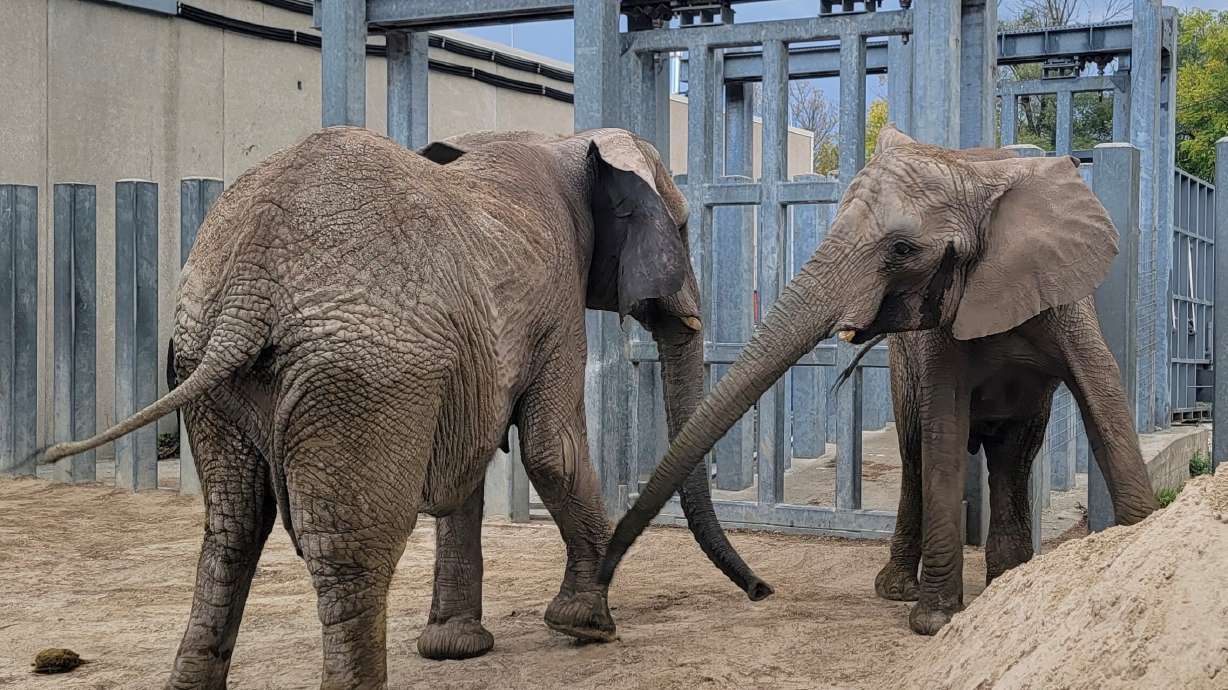Estimated read time: 2-3 minutes
This archived news story is available only for your personal, non-commercial use. Information in the story may be outdated or superseded by additional information. Reading or replaying the story in its archived form does not constitute a republication of the story.
KANSAS CITY — Two beloved African elephants have safely arrived at their new home at the Kansas City Zoo & Aquarium after being transported from Utah's Hogle Zoo on Tuesday.
Christie, 37, and Zuri, 14, are joining a multigenerational herd for their social well-being and breeding potential. The herd includes seven other African elephants.
The two elephants' departure marks the end of more than a century of elephants being cared for at Hogle Zoo, which announced plans to suspend its program in May because it didn't have the space needed to bring in a bull elephant to continue breeding at the zoo.
"Utah's Hogle Zoo believes we have selected an accredited partner who meets all the goals we sought for Christie and Zuri, including excellence in animal care, a multigenerational herd and the opportunity for offspring," said Doug Lund, Utah's Hogle Zoo president and CEO, in a statement Thursday. "Working with the team over these many planning months has formed a bond that will continue our collaboration with African elephants and updates on Christie and Zuri's progress."
Hogle Zoo previously kept the elephants' new home a secret, as well as the exact time when they would be moved, to ensure the animals' safety. The zoo held a farewell party for the elephants on Sept. 23.
The Kansas City Zoo, like Hogle Zoo, is also accredited by the Association of Zoos & Aquariums and works with its Species Survival Plan program to strategically breed and protect endangered species.
The Kansas City Zoo also has a much larger acreage than Hogle Zoo, with 202 acres compared to Hogle's 42, and will provide more than three acres of outdoor space for the herd. An estimated 100 elephants are killed every day, and the world's African elephant population has declined from 1.1 million in the 1970s to about 450,000 today, according to the zoo's statement.
"We are thrilled to welcome these new elephants to Kansas City," said Sean Putney, Kansas City Zoo executive director & CEO. "I am proud of the time and resources that have been put into this move to ensure the highest level of animal care and wellbeing. This is really what our network of AZA-accredited zoos is all about, working together for the benefit of wildlife, and I have never seen a better example of that than during this process."
Christie and Zuri are being quarantined to acclimate to their new environments but will be introduced to the rest of the Kansas City herd soon.









